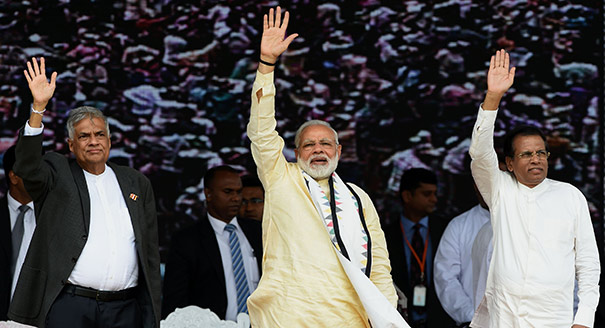Registration
You will receive an email confirming your registration.
India’s Look East policy, initially aimed at reconnecting India with Asia’s economic globalization, has since evolved into a comprehensive regional strategy with political and military dimensions. As the United States rebalances to Asia, however, India faces new dilemmas. While Washington and New Delhi may agree on China’s role in the region, geography and asymmetry of power make common policies increasingly hard to define.
In a new book, India Turns East: International Engagement and U.S.-China Rivalry, Frederic Grare examines India’s response to China’s rise and how India might navigate a rapidly changing Asian environment shaped by the U.S.-China rivalry and the uncertainties of U.S. commitment to Asia's security. Carnegie’s Ashley J. Tellis joined him in conversation.
Frederic Grare
Frederic Grare is a nonresident senior fellow in Carnegie’s South Asia Program. His research focuses on security issues, Afghan, Indian, and Pakistani regional policies, and the tension between stability and democratization.
Ashley J. Tellis
Ashley J. Tellis holds the Tata Chair for Strategic Affairs and is a senior fellow at the Carnegie Endowment for International Peace, specializing in international security and U.S. foreign and defense policy with a special focus on Asia and the Indian subcontinent.
